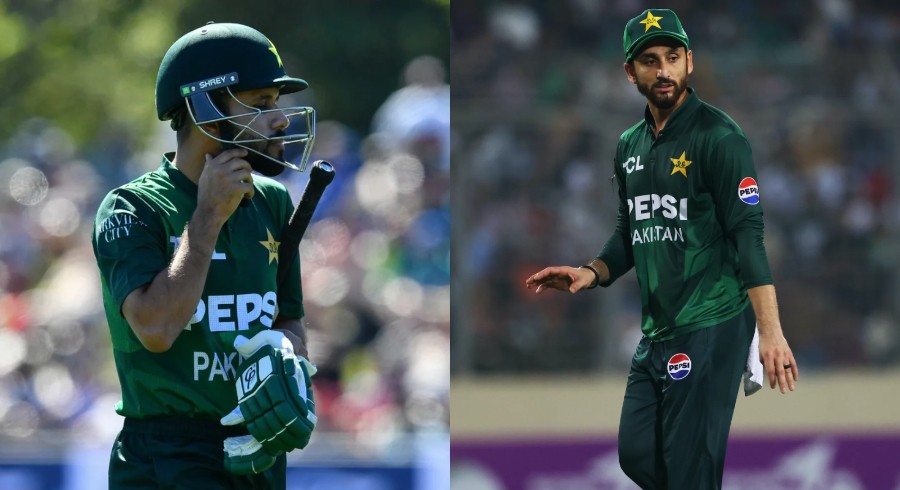The interviewer asked: “Do you think Babar Azam should change his T20 batting style?”
Mohammad Haris replied: “Yes.”
Next question came: “Faster or slower?”
Haris answered: “Faster.”
I saw this clip where Haris was giving short responses in a rapid-fire style Q&A. On the surface, there was nothing extraordinary about it. But Babar Azam’s loyal fans and social media army created an uproar. They trolled Mohammad Haris so badly that the poor guy has become frustrated.
“Look at yourself, how do you bat? How could you say this about Babar? Don’t you know how to respect your senior?” and so on.
First of all, we live in a free country where everyone has the right to express their opinion respectfully. That interview wasn’t recorded yesterday — the clip just recently went viral. If something was said in a lighthearted, joking manner, why make a storm out of it? If that’s the standard, then neither you nor I should ever criticize a cricketer, because we haven’t played 100 Tests either.
This is exactly our problem: even in politics, we’ve put some people on a pedestal where no criticism is tolerated. And if someone dares to speak against them, social media unleashes hell on that person. Babar is a cricketer, but for some fans, their devotion to him is so extreme that they cannot stand a single word of criticism.
No doubt, he is the biggest star of the current era. Talking about him guarantees more views. Now that Twitter (X) is monetized, if you have a friend abroad, you can link their account and earn money — but for that, you need views. So praise Babar, post a video, and earn dollars. YouTubers do the same. Since Pakistani accounts are banned in India, the only way left to make money is by talking about Babar.
This isn’t new. Even years ago, when Wasim Akram commented on Babar’s batting style, he too was heavily trolled — despite being a far greater cricketer with world records to his name.
You must have seen how Mohammad Haris smashed his bat in frustration after getting out against the UAE. There were still four overs left — what century could he possibly have scored? It was frustration that made him react that way. Social media these days has a huge impact on players. Yes, Haris is out of form, but don’t forget at which batting number he is playing. If you don’t like a player, drop him from the team — but no one has the right to damage his mental health.
Even with Salman Ali Agha, fans haven’t behaved well. Did he make himself captain? Did he oust Babar from captaincy or the team? No! The board gave him that responsibility. He’s not an Indian cricketer — he’s Pakistani. Support him.
People compare his strike rate or average with Babar’s, but one thing needs to be clear: players like Babar Azam are rare. You can’t really compare anyone to him. However, any player can suffer from poor form. Just because Babar is out of form today doesn’t mean it will last forever. He can come back and score heaps of runs again. But in the meantime, don’t treat the current players as enemies. This isn’t “Babarestan” — it’s Pakistan’s team.
Remember, when we lost to Zimbabwe, Ireland, Afghanistan, and even the USA, Babar was also in the team. Losses happened then too. Times have changed — modern T20 cricket requires aggressive batting. Young players need opportunities if they are to perform. Look at Hasan Nawaz — given chances, and now he’s thriving. Similarly, Sahibzada Farhan and Saim Ayub have proved themselves. Salman Ali Agha is performing better too.
I’ve spoken to several players and officials — all say the current team is united and fully supportive of one another. We should do the same. Believe me, within a few months, these same players will start bringing consistent victories. Loving one player doesn’t mean hating another. They’re all our own. Yesterday someone else was the star, today it’s someone new, tomorrow it will be another. Give them time. Once they’ve played 100–200 matches, then compare performances fairly. Right now, it isn’t justified.
These cricketers belong to new generation — like all, they also spend free time scrolling on mobile phones. When they see comparisons and negative clips about themselves, they lose confidence. You can’t expect anyone today to stay away from social media. Even if a player isn’t active online, family or friends still send them these clips saying, “Look what’s being said about you.” Does that increase their confidence — or decrease it?
Trolling our own players achieves nothing. If performance isn’t good, by all means criticize, but choose your words carefully. Unless someone can guarantee that bringing back a certain player will make Pakistan the No.1 team, criticism should be fair — and before demanding a player’s return, look at their past stats too.
